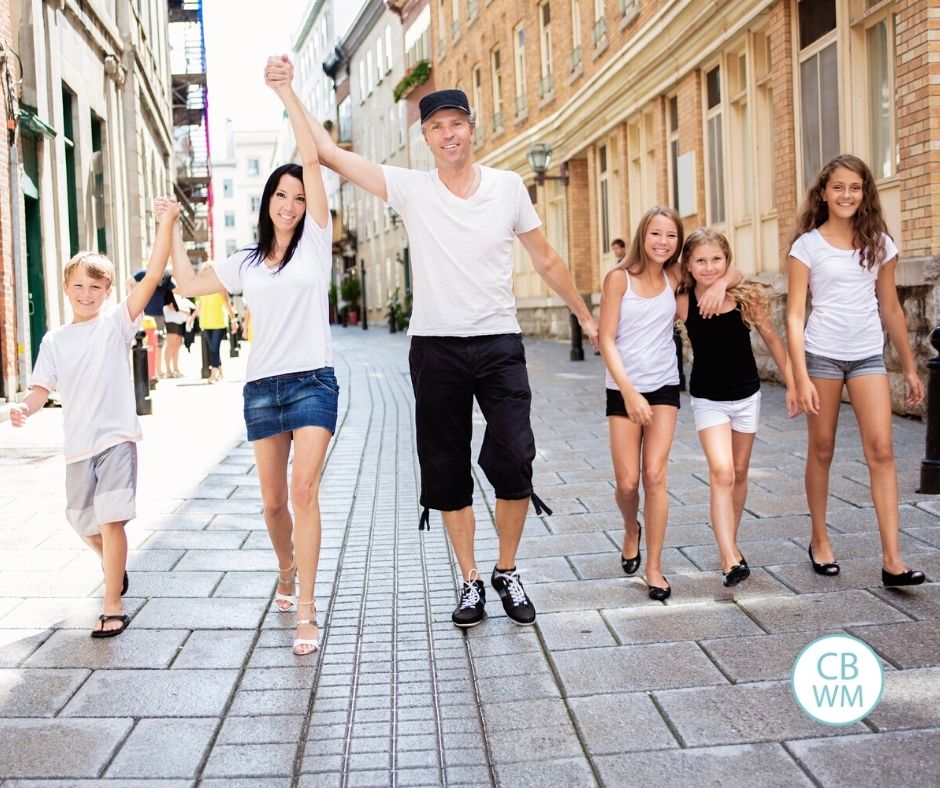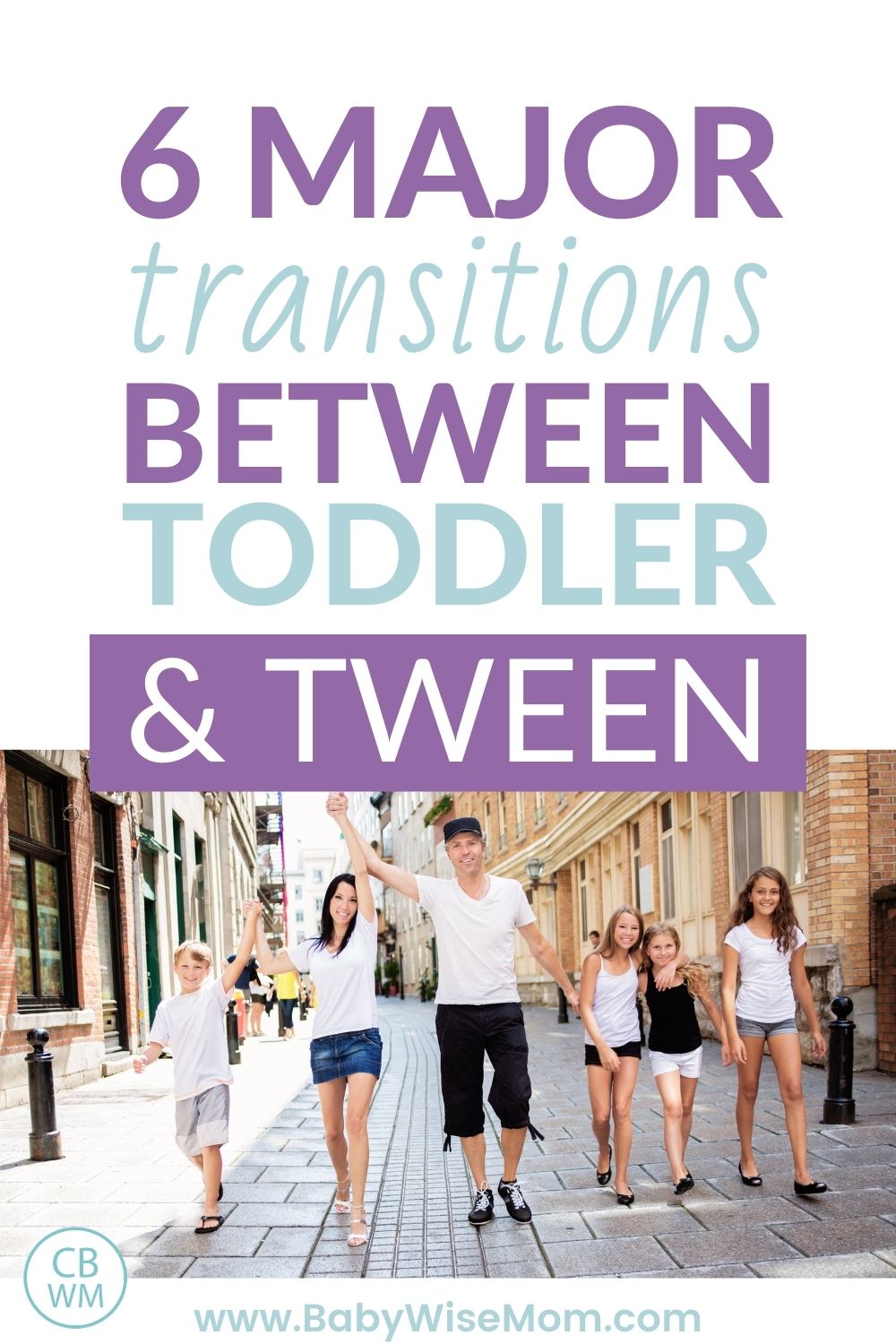Find out what major transitions will happen between the time your child is a toddler and a tween. Written by Gary Ezzo.

As I have been discussing Phase One of parenting on this blog, in the Chronicles Google Group, and in an online bookclub, it has become more and more obvious that people are really struggling to fully conceptualize Phase One of parenting as outlined in On Becoming Childwise
I decided to turn to Gary Ezzo for further information and clarification. With his permission, I share with you his response. Here are his words, with the emphasizing my doing. Thank you, Gary!
I read your blog [Leadership Phase] and I think you have grasp the gist of four phases.
But your question seeks to understand what is going on during phase one. I’m assuming you mean what is going with both the parent and the child.
In our new toddler series (The Toddlerhood Transition) I used a covered-wagon analogy to help explain what the broader role of parenting might be during this phase.
During the days of covered wagons, families traveling together in the open plains would circle their wagons at night. This was to create a perimeter of protection from outside influences.
Parenting in phase one is like circling the wagons, but it serves to confine a child’s nature until he is able to create his own perimeter of self-control that will protect him from hostile outside influences.
Keep in mind that young children, especially toddlers, can act in ways that drive parents batty.
For example, at the beginning of this transition, toddlers clearly act impulsively out of their natures.
That’s because children do not possess any sense of right and wrong, justice or tyranny, nor are they always able to separate being safe from being sorry.
They do not care how much your coffee table cost or why striking a Superman pose while standing in the middle of it should bother you.
Toddlers do not live in a world of right and wrong; they live in a world of personal satisfaction fueled by a self-driven impulse that has no moral or health and safety alignment.
Parents Move from Trainers to Educators
That means In phase one, parents are first trainers (birth to three years of age), and once the child’s conscience develops, Mom and Dad become educators.
I make this distinction between training and educating because pre-toddlers and toddlers have the capacity to be trained but not the capacity to understanding the purpose, i.e. the longer term benefits of training.
But children between three and seven begin to grasp the broader meaning, health and safety and social implications of their daily decisions.
As a result, parents can begin to educate the child as to the ‘why’ behind their instructions, and a child can begin to regulate his or her behavior based on a new understanding of ‘why’ they should do or not do certain things.
>>>Read: Teach “Why”
6 Major Transitions from Toddler to Tween
Okay, if I haven’t confused the issue too badly up to this point, let break down what exactly is going on in this phase.
It can be best explained by looking at the six major transitions within phase one. Again, I will pull from the Toddlerhood Transitions book which speaks to these transitions.
“There are several transitions children and parents will pass through during the pilgrimage from the toddler months straight to the middle years, (eight to twelve). The word transition implies a process of maturing where old ways of doing things give way to new understanding and improved patterns of conduct. The six major transitions starting in toddlerhood include:
1. Nature to Will Transition: A child does ‘wrong’ as a result of his ‘me, ‘myself’ and I’ nature versus the child willfully choosing between right and wrong, because the child now understands the ‘why’ of right and wrong.
2. Training to Educating Transition: Training teaches the how of behavior, (what right responses look like). Educating teaches the why of behavior after a child is old enough to gain understanding.
3. Boundaries to Freedom Transition: This is the establishment of external limitations that are gradually replaced by personal self-restraint.
4. Compliance to Obedience Transition: Following instructions simply because authority said so, versus yielding because of a growing understanding of the virtue of obedience that has the child’s welfare at heart.
5. External to Internal Motivation Transition: Applying outward pressure to conform a child to do what is right is eventually replaced by internalized principles that motivate him to do the right thing. (Parents should be spending a lot of time educating in this season, meaning putting “understanding” into the child).
6. Authority to Influence Transition: The need to lead by parental authority gradually transitions to leading a child by parental influence. (This can begin by the middle of the coaching phase.) As a child grows and increases his understanding of virtues, the ‘need’ and ‘necessity’ of external contra,l (authority) that insists on those virtues and values, begins to diminish.”
My summary thoughts follow.
Parents are busy in every phase but very busy in phase one because of all the transitions they have to work through.
That is why we encourage order, routine, and structure in a young child’s life, because it allows Mom and Dad to be proactive in their training rather than reactive.
In the early years, parents are not the child’s ‘big buddy’ but their parent. Friendship, (phase four), is the relational goal of your parent, not the starting point.
Related Posts
- Four Phases of Parenting (Childwise)
- Leadership Phase
- Should You Control the Environment for Your Children
- Your Ultimate Goals of Parenting


Thanks for this post. It is very appropriate for us right now. My 3 year old is working on figuring out the difference between being mean and doing something by accident. Like, stepping on someone's foot because you didn't see them there verses going up to someone and purposefully stepping on their foot. It's interesting to watch him process these concepts. Please thank Mr. Ezzo for taking the time to clarify things. Also, what is this new series he is referring to? Is it separate from the Wise series? Thanks again for this timely post!
Janelle, I believe he's referring to the Growing Kids God's Way curriculum book which has Toddlerhood Transitions as a part of it. I recently ordered the Preparation for Parenting workbook (the church curriculum version of Babywise) and found tons of great additional info. I imagine the other books are similar. The -wise series is the condensed, secular version.Val, thanks for asking Gary about this, this article does clarify the issue for me! I was so confused because in the Childwise book they first describe the first phase as authority and the second as training. I think this second explanation of training then educating makes a bit more sense in my mind. In my head I'd define most of what is advised in Babywise/Toddlerwise as training, while the Preschoolwise and Childwise books definitely get more into the educating aspect.
You are welcome Manda! And thanks for answering Janelle.